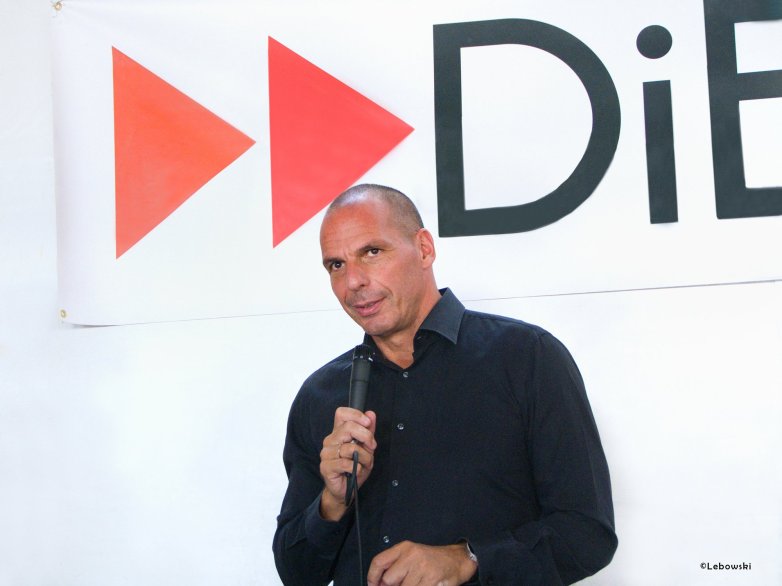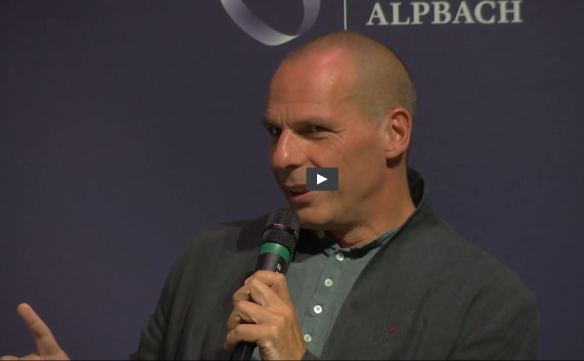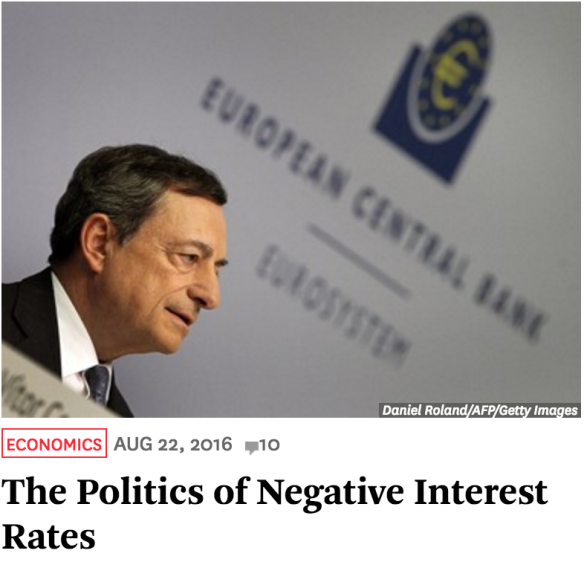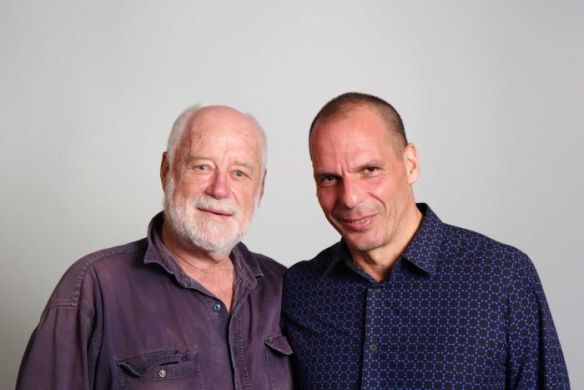Paul Krugman, Ross LaJeunesse (Google), Yanis Varoufakis (DiEM25) and Yasheng Huang, economist, M.I.T.

Paul Krugman, Ross LaJeunesse (Google), Yanis Varoufakis (DiEM25) and Yasheng Huang, economist, M.I.T.
 In a letter addressed to supporters of Another Europe Is Possible, Yanis Varoufakis makes the case for the organisation to unite with the Democracy in Europe Movement 2025
In a letter addressed to supporters of Another Europe Is Possible, Yanis Varoufakis makes the case for the organisation to unite with the Democracy in Europe Movement 2025
Stefano Fassina points out that in my article ‘Europe’s Left After Brexit’ I did not discuss his preferred option for Eurozone member-states: Stay in the EU but leave the euro. Of course the reason my article did not discuss that position is that it was focusing on Brexit and addressing Lexiteers like Tariq Ali and Stathis Kouvelakis who are arguing, from a left-wing position, for leaving the EU altogether – i.e. Brexit-like moves. But I am more than happy to comment on Stefano’s preferred option (In the EU, Out of the Euro) here. Continue reading

Last year, I came to La Fete with a message from Greece. The Athens Spring had just been crushed by the Troika because Europe’s Establishment was planning to bring the Troika to Paris. Since then, the Troika has come to Paris. Labour Laws have been passed by Presidential decree. Civil liberties have been diminished. And the magnificent people of Paris responded with Nuit Debout.

Stefano Fassina was kind enough to respond to my article entitled Europe’s Left After Brexit. His reply follows.

You left office about a year ago – any regrets?
None whatsoever. Once it was no longer possible to do good for Greece as minister, there was no reason to stay in office.

Preface: This article (published in edited form in Jacobin, Neues Deutschland, Il Manifesto, Mediapart and elsewhere) addresses left-wing critics of DiEM25 claiming that DiEM25 is pursuing the wrong objective (to democratise the EU) by means of a faulty strategy (focusing at the European rather than at the national level). This response, while addressed to left-wing supporters of Lexit (the strategy of calling for referenda in favour of leaving the EU, Brexit style), is pertinent also as questions raised often within the other political traditions that DiEM25 seeks to unite in the struggle to democratise Europe; i.e. authentic liberals, ecologists, feminists, members of pirate parties, activists unwilling to be embedded in existing parties, progressive conservatives even.[1] Continue reading


Zur bevorstehenden Bundespräsidentenwahl befragt, meinte der Linkspolitiker, es handle sich dabei nicht um ein Rennen zwischen einem linken und rechten Kandidaten. “Das wäre fantastisch”, so Varoufakis. Es gehe vielmehr um “Zivilisation” oder nicht. Als Europäer sei er beschämt darüber. Solche Reaktionen der Bevölkerung auf die Politik gebe es auch in anderen Ländern – von Ungarn, Griechenland, Polen, Frankreich oder auch in Großbritannien. “Es ist nicht die Schuld der Menschen”, so Varoufakis.
 In October 2015, I had the opportunity to debate, in Munich, Professor Hans Werner Sinn on the European Monetary Union and, more broadly, Europe’s economy . On 30 August 2016, at the Alpbach European Forum, I debated Professor Sinn’s successor as President of IFO, Professor Clemens Fuest. [Click here, or the image above, for video of the two keynotes and the debate.] This Alpbach Keynote Debate was organised along the lines of the following proposition/question
In October 2015, I had the opportunity to debate, in Munich, Professor Hans Werner Sinn on the European Monetary Union and, more broadly, Europe’s economy . On 30 August 2016, at the Alpbach European Forum, I debated Professor Sinn’s successor as President of IFO, Professor Clemens Fuest. [Click here, or the image above, for video of the two keynotes and the debate.] This Alpbach Keynote Debate was organised along the lines of the following proposition/question

By James K. Galbraith (Click here for the Globe’s site) Continue reading


ATHENS – Objects of desire come at a cost. Only bad things, like toxic waste, have a negative price, the equivalent of a fee payable to anyone willing to make them disappear. Does this mean that negative interest rates embody a new perspective on money – that it has gone “bad”? [To read on, click here]


A few weeks ago, Stefan Aust, Die Welt’s editor and formerly the heart and soul of Der Spiegel, paid me a visit at our Aegina house. We spoke for a good two hours on Europe, Germany, Greece and, of course, DiEM25. It was a serious, pleasant and at times passionate discussion. On 14th August the article-interview was published. For Die Welt’s site click here. (For the longer version of the interview, as published, in pdf form click: Page 1 & Page 2) Alternatively… Continue reading

The FT’s silly season Q&A edition had some questions for several of us. Here are my answers:
How are you spending the summer? Continue reading


Athens daily Kathimerini published a letter signed by 23 ‘US-educated Greeks’ sent to the University of Texas’ President denouncing James K. Galbraith (a long-standing professor there) for having helped me design a “monetary cum military coup d’etat”. At least that was their description of my Plan X – a preliminary contingency plan to counter the European Central Bank’s Plan Z with which Greece is being threatened continually since 2012 – see the Financial Times report here. Once more, the victims of the troika’s six-year-old coup d’etat, which has pushed the Greek people into a vortex of Depression and Insolvency, are being portrayed as coup plotters. The purpose of this campaign, in which Kathimerini has played an energetic role, is to vilify anyone who resisted the troika, who did her or his duty to defend Greece’s democracy, and who continues to argue that the only way to end Greece’s crisis is to oppose the troika. What is new here, with the letter of the 23, is a new violation – this time of the most basic of academic principles: “Never criticise a text that you have not read!” As Galbraith demonstrates in his response to Kathimerini (see below), the 23 ‘US-educated Greeks’ based their denunciation letter on misinformation peddled by, amongst others, Kathimerini – e.g. the preposterous allegation that Plan X included a plot to arrest the Governor of the Bank of Greece. To read Galbraith response…